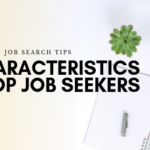Insider Tip – How to Answer Interview Question “Tell me about yourself”
“So… tell me about yourself.”
Do you stutter or freeze when answering this question? It’s a loaded one!
A lot of jobseeking clients tell me this is the most nerve-racking question and they are not sure if they are oversharing or under sharing.
Enjoy this video as I break down the 3-step process of how to position yourself for this question and, more importantly, create your own answer!
Since it’s the first question that often comes up, you must prepare a strong answer to this question. It’s also the one question that sets the tone for the rest of the interview.
In this video, you’ll learn:
- the framework of how to answer this question
- understand what is most important to highlight and what the interviewer REALLY wants to know
- and check out an example of how this sounds when done correctly
The 3-Step Formula to Answer “Tell Me About Yourself” During the Interview
How can you do this job and why are you in the seat today?
– Recruiter or Hiring Manager
This is really your opportunity to showcase what you’ve done, what you’re doing and what you’re looking for. So in other words, we’re gonna go over your past, your present, and your future. That’s the simple formula.
Your Past
I have had people literally regurgitate everything that was already in front of me as they read through their resume line by line. Take this opportunity to share what’s in between the lines of your resume. In other words, I want to know how did you get to where you are today?
Did you have a defining moment that really led you to know that this is the path that you’re on?
Is there a reason why you made the career moves that you did? Were you called in any certain way? What did you really learn or what did you really accomplish that you’re super proud of that has led you to become the best candidate for this role today?
I don’t need to know a play by play of everything that you’ve done, rather I want to get a high-level overview of what you bring to the table given your past experiences.
Example:
First off, I’d like to thank you for inviting me in for an interview, I’m excited to be here.
I started off my career in recruitment in the most serendipitous way. I was actually seeking a legal support role when I walked into a legal staffing agency. I was just so impressed by how this recruiter was willing to help me find a job without having to pay anything. This is before I learned how recruiter commissions worked. In that conversation, the recruiter asked if I ever considered becoming a recruiter.
She ended up hiring me internally that day to support the CEO of a $200 million staffing agency. It was such a great opportunity for me to learn the ins and outs of the recruitment business from an operational level. And funny enough, after six months, the CEO actually asked if I would consider becoming a recruiter for attorneys and legal support staff.
Since then, I successfully placed hundreds of candidates in direct-hire and temp roles. I’ve spent the past six years refining my business development, relationship building and prospecting skills. Recruiting has been extremely rewarding because I love helping people find top talent, and I just love being able to change a candidate’s life by providing a new life-changing opportunity. I also got a really great thrill from finding the purple squirrels that my clients thought were impossible to find.
As you can see from this example, it’s really about focusing on the attributes and the characteristics, the skills, the experience, and the qualities that are going to be the most important to your interviewer.
What is it that they care about? And if you conducted the SWOT analysis on your job description, you should know exactly what to highlight because you’ve already looked through the strengths that need to be called out during your interview prep.
Your Present
Now it’s time for step two of the formula, which is your present.
So many employers want to know what you have done most recently or what you’re doing in your current role that allows you to immediately contribute to this new position that you’re interviewing for. So again, we’re not necessarily wanting to highlight these specific examples or draw upon examples that were done maybe 10 years ago or even five years ago. Employers want to know what have you been doing currently that positions you so well for this new opportunity.
So here in this section, you’re really going to be highlighting again, what is most important to that employer? What is it that they really asked for in that job description that you can now share? You want to tie how what you’ve been doing makes this position ideal as it’s just a natural extension of where you’re headed towards.
Example:
About two years ago, I transitioned into the corporate talent acquisition side within Netflix’s talent acquisition team. Here, I’m responsible for managing up to 25 requisitions from entry-level positions all the way to the director level. I’ve been able to mentor and train new recruitment hires as well as lead the strategy for all of our internal operations.
I’m most proud of streamlining our systems such as implementing set recruiting meetings and interviewing schedules within our hiring teams. This has allowed us to bring in top talent quicker and also reduce the average fill rate from 55 days to 40. In this role, I’ve really honed my team management, operational management, and technical recruitment strengths.
As you can see, I’m just highlighting the main important qualities, characteristics, experience, skills that my hiring manager is most curious about and also most intrigued about based on the job description that was given.
Your Future
Now it’s time to move into the final step of this formula, which is really positioning yourself for your future. Again, why are you in that chair today? Bonus points to you if you’re able to tie in the company’s mission, their values, or just really demonstrating that you’ve done research on this role in this company and you would love to join their team.
Example:
Moving forward, and why I was so excited to learn about this role, I’m really looking for an opportunity to help an organization that is making a direct impact on communities around the globe.
I’ve been following TOMS for some time and I’ve actually been a loyal consumer since 2012. I just absolutely love what TOMS stands for and it’s amazing that the company has donated millions of shoes to those who really need them. I’d love to help the company further its mission by hiring the best candidates as I know a company is only as good as its people. If given an opportunity, I’d love to help continue streamline your recruiting operations as well as I manage your team to ensure that we can stay competitive with the market and reduce any staff shortages.
“How to Answer Yourself” during an interview can be really simple!
There you have it, congratulations! Once you piece together your past, your present, and your future, you have the framework and the foundation to answer, “Tell me about yourself!” with ease.
You don’t have to worry about oversharing or undersharing, and most importantly, you’re positioning yourself as the candidate that is qualified and can immediately contribute into this new role.
Don’t worry about thinking, “Oh my gosh, am I sharing enough?”
Just know that the interviewer’s job is to probe further. They might be more curious about your past and they’ll go there. Maybe they’re interested in your future and they’ll ask you a little bit more about your long term vision. You can always elaborate and clarify, but leave that to the interviewer because now by giving this strong foundation, you’ve given them a lot of areas to bounce off of, and most importantly, you’re really building rapport and demonstrating that you’re an “A” candidate.
If you really want to calm your nerves during this interview, check out my free visualization exercise to reduce anxiety during your upcoming interview.
Good Luck!
Emily
P.S. – Click here if you’re interested in booking a mock interview session.
If you found this article helpful, you can learn about how Emily Liou, Career Happiness Coach at CultiVitae guides corporate professionals to wake up happy on Mondays! Emily works with ambitious corporate professionals in her private coaching program called The Corporate Ladder of Purpose™. She also teaches job seekers how to conquer every stage of the job search process through her comprehensive e-course and group coaching program, the Happily Hired Formula™.


